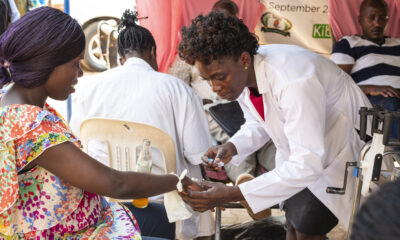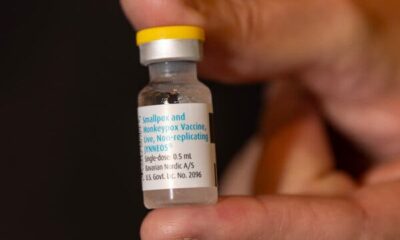Health
African Biostatisticians Analyze Malaria Messaging Effectiveness

Research conducted by African biostatisticians reveals critical insights into malaria messaging effectiveness. Edson Mwebesa, a Fellow at the Wits-based Sub-Saharan Africa Advanced Consortium for Biostatistics (SSACAB), has highlighted the devastating impact of late-diagnosed malaria, particularly among vulnerable populations. His findings indicate that malaria is significantly more prevalent among pregnant women in Uganda than in other demographics.
Malaria continues to pose a severe public health challenge across the African continent. It affects millions and has far-reaching consequences on social and economic dynamics. The disease is endemic in many regions, leading to high mortality rates, especially among children and pregnant women. According to the World Health Organization (WHO), malaria accounted for approximately 619,000 deaths globally in 2021, with Africa bearing the brunt of this burden.
Mwebesa’s research underscores the urgent need for effective public health messaging to combat malaria. He has witnessed firsthand the tragic outcomes of delayed diagnosis in children, a situation that could be improved through better awareness and education. The data collected suggest that many individuals, especially in rural areas, remain unaware of malaria symptoms and the importance of timely medical intervention.
Understanding Malaria’s Impact in Uganda
In Uganda, malaria remains a leading cause of illness and death. The country has made strides in reducing the disease’s prevalence through various initiatives, yet challenges persist. Pregnant women are particularly at risk, as malaria can lead to severe complications, including anemia and low birth weight. According to research published by the Uganda Ministry of Health, malaria prevalence among pregnant women stands at 19%, significantly higher compared to other groups.
Mwebesa’s findings also reflect broader trends across Africa, where access to healthcare and educational resources can vary widely. The disparities in healthcare access contribute to the ongoing challenge of controlling malaria. With inconsistent messaging and a lack of understanding about the disease, many individuals may not seek treatment until it’s too late.
The Role of Biostatistics in Public Health
The work of biostatisticians like Mwebesa is vital in shaping public health strategies. By analyzing data related to malaria transmission and prevalence, they provide insights that can inform more effective communication strategies. This research not only highlights the need for targeted messaging but also emphasizes the importance of community engagement in health initiatives.
Efforts to improve malaria messaging must focus on clear, actionable information tailored to specific populations. Mwebesa advocates for educational campaigns that address misconceptions about malaria and encourage early diagnosis. By leveraging data-driven insights, public health officials can develop strategies that resonate with local communities and ultimately save lives.
As Africa continues to grapple with malaria, the contributions of biostatisticians will play a crucial role in guiding effective responses. The ongoing research by Mwebesa and his colleagues at SSACAB underscores the importance of data in understanding health challenges and improving outcomes for vulnerable populations. With sustained efforts and improved messaging, there is hope for a future where malaria’s grip on Africa is significantly weakened.
-

 Technology4 months ago
Technology4 months agoDiscover the Top 10 Calorie Counting Apps of 2025
-

 Health2 months ago
Health2 months agoBella Hadid Shares Health Update After Treatment for Lyme Disease
-

 Health3 months ago
Health3 months agoErin Bates Shares Recovery Update Following Sepsis Complications
-

 Technology3 weeks ago
Technology3 weeks agoDiscover 2025’s Top GPUs for Exceptional 4K Gaming Performance
-

 Technology4 months ago
Technology4 months agoDiscover How to Reverse Image Search Using ChatGPT Effortlessly
-

 Technology2 months ago
Technology2 months agoElectric Moto Influencer Surronster Arrested in Tijuana
-

 Technology4 months ago
Technology4 months agoMeta Initiates $60B AI Data Center Expansion, Starting in Ohio
-

 Technology4 months ago
Technology4 months agoRecovering a Suspended TikTok Account: A Step-by-Step Guide
-

 Health4 months ago
Health4 months agoTested: Rab Firewall Mountain Jacket Survives Harsh Conditions
-

 Lifestyle4 months ago
Lifestyle4 months agoBelton Family Reunites After Daughter Survives Hill Country Floods
-

 Technology3 months ago
Technology3 months agoUncovering the Top Five Most Challenging Motorcycles to Ride
-

 Technology4 weeks ago
Technology4 weeks agoDiscover the Best Wireless Earbuds for Every Lifestyle





















